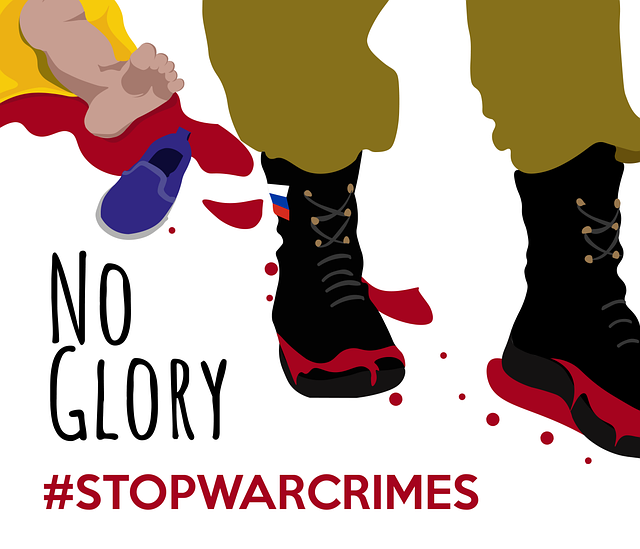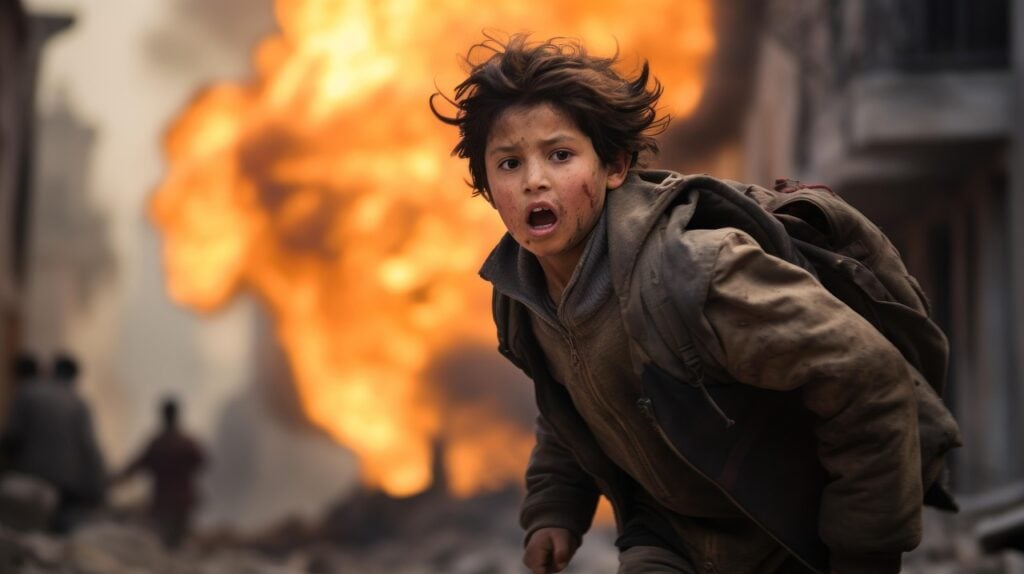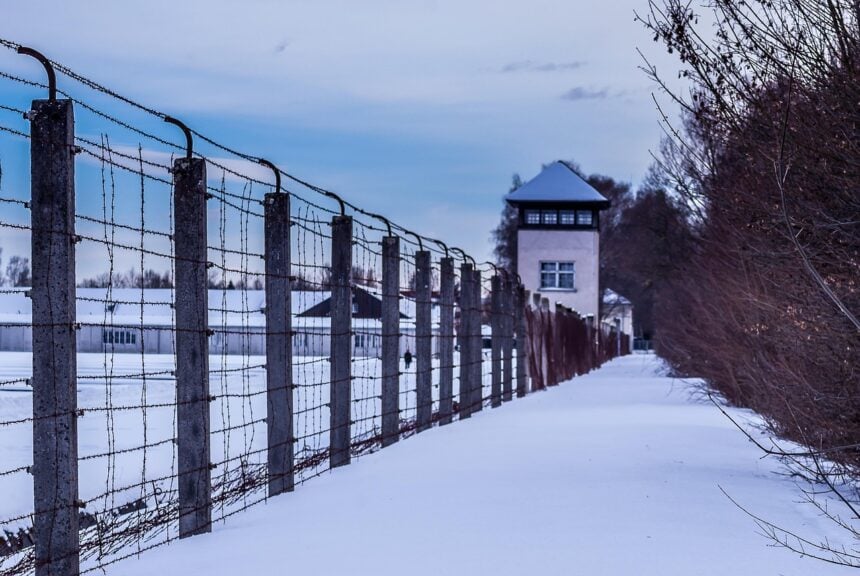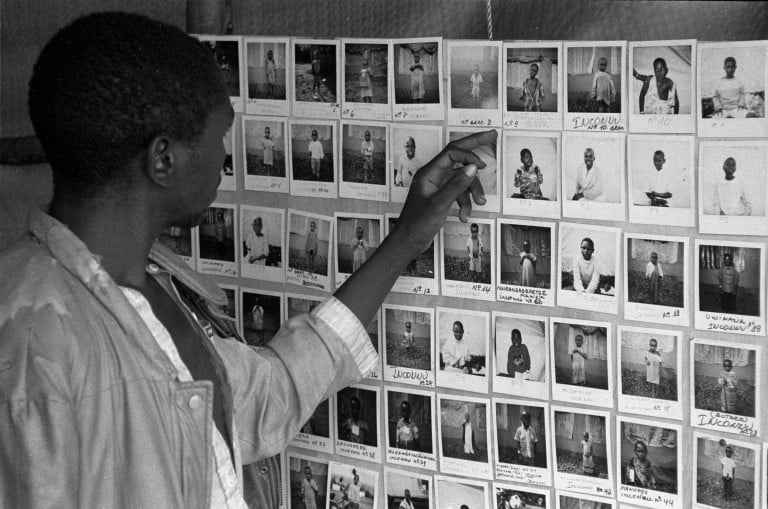Genocide is one of the most horrifying crimes against humanity, characterized by the deliberate and systematic extermination of a particular group of people based on their ethnicity, nationality, religion, or other defining characteristics. This article looks at the complex history of genocides throughout history, highlighting notable events, their perpetrators, victims, and the motivations behind these atrocious acts of genocide. By studying these events, we hope to educate, inform, and raise awareness in order to prevent such atrocities in the future.

The war in Gaza has been labeled a genocide by Amnesty International in December, 2024, Human Rights Experts with United Nations in March, 2024, the EU’s former top Diplomat in May, 2025, and the country of South Africa in a filing to the ICC, International Criminal Court. In their complaint, they referred to the multitude of war crimes that have been committed by the Israeli military, including the use of starvation as a weapon of war.
While notable experts on the region, including supporters of Israel, have admitted that what is happening in Gaza meets the characteristics of genocide, there are still people who dispute and push back against the assertion. Both sides have been debating the question of whether it’s ethnic cleansing, genocide, or a blatant disregard of human rights and war crimes.
The debate began soon after Israel retaliated against the citizens of Gaza following the attack by Hamas on October 7, 2023 in which close to 1,200 Israeli’s were killed and 250 were taken hostage. As of 2025, around 59 hostages remain in Gaza, though Israel believes 35 of them are dead.
Ministers of the far-right government of Israel, like Bezalel Smotrich and Itamar Ben Gvir have been open about their plans. They’re going to force the Palestinians into a tiny section of land in Southern Gaza prior to forcing them out of Palestine so Israel can take over the rest of Gaza.
They went so far as to admit the only reason they’re allowing a small amount of food to enter the Gaza strip is because the United States, which has funded this war, is concerned about the “optics” of children starving to death. Gvir said the small amount of food should keep them alive so they can to receive funding and support from the U.S. to continue their assault.
Thats whats happening in 2025. This article is going to focus on the past. Understanding the nature of genocides helps in recognizing the early warning signs that may lead to future atrocities.
Definition of Genocide
The term genocide was coined by Polish-Jewish lawyer Raphael Lemkin in 1944, deriving from the Greek word genos meaning race or family, and the Latin word cide meaning killing.
The United Nations Genocide Convention, adopted in 1948, explicitly defines genocide as acts committed with intent to destroy, in whole or in part, a national, ethnic, racial, or religious group. These acts may include killing members of the group, causing serious bodily or mental harm, and deliberately inflicting conditions of life calculated to bring about its physical destruction.

An excellent resource for anyone interested in learning more about any of the events on this list: Cambridge World History of Genocide. It’s a well-known, authoritative book that comes in two parts.
Genocide vs. Ethnic Cleansing
This understanding is crucial for identifying genocides in their early stages.
While both genocide and ethnic cleansing involve the targeting of specific groups, they are distinct concepts. Ethnic cleansing refers primarily to the forced removal of an ethnic group from a particular territory, often involving violence or intimidation. Unlike genocide, the intent behind ethnic cleansing is not necessarily the complete extermination of the group. Instead, it focuses on altering the demographic composition of a region. Understanding this distinction is important for analyzing historical events and recognizing the varying degrees of violence and intent involved.
5 Worst Genocides in History
1. The Holocaust
Perpetrators
The Holocaust, which occurred during World War II, saw the systematic extermination of six million Jews by the Nazi regime, led by Adolf Hitler. The Nazis classified Jews as racially inferior and a threat to the so-called Aryan race. They implemented policies of discrimination, deportation, and ultimately mass murder through concentration camps and extermination facilities.

Victims
While Jews were the primary target, the Holocaust also victimized other groups, including Romani people, disabled individuals, Polish people, Soviet prisoners of war, and homosexuals. The Nazis aimed to eliminate all those they deemed undesirable, resulting in immense suffering and loss of life.
Motivation
The motivations behind the Holocaust were deeply rooted in anti-Semitic ideology, nationalism, and a desire for racial purity. The Nazi regime propagated the belief that Jews were responsible for Germany’s social and economic problems, manipulating public sentiment to justify their genocidal policies. The Holocaust serves as a chilling reminder of the dangers of hatred and intolerance.
We see the same tactic being used by the Trump administration. Not the goal of genocide, but in the same way that Nazis “propagated the belief that Jews were responsible for Germany’s social and economic problems.” The current administration has been blaming issues prevalent in lower-income rural areas—lack of affordable housing and unemployment—on immigrants.
Politicians have been stoking hatred and dehumanizing immigrants to the point that American citizens are cheering at the sight of them suffering or in shackles.
Two separate investigations have found that: 75% of the migrants sent to a terrorist prison in El Salvador didn’t have a criminal history and DHS records show that the administration was aware that the vast majority were not gang members or criminals before they condemned them to life in a foreign prison. It’s certainly a dangerous situation in this country for anyone who’s not a citizen. Especially with an administration that shows all the signs of becoming a fascist regime.
2. The Cambodian Genocide
Perpetrators
The Cambodian Genocide, which took place from 1975 to 1979 under the Khmer Rouge regime led by Pol Pot, resulted in the deaths of an estimated 1.7 million people. The regime targeted intellectuals, professionals, and anyone perceived as a threat to its vision of a communist agrarian society.
Victims
Victims included educated individuals, ethnic minorities, and religious groups. Many were subjected to forced labor, torture, and execution in notorious killing fields, reflecting the regime’s brutal attempt to reshape society.
Motivation
The motivations behind the it stemmed from a radical communist ideology that sought to eliminate perceived enemies of the state. The Khmer Rouge aimed to create a classless society, which involved the eradication of urban culture and the systematic killing of those associated with the old regime. This genocide underscores the dangers of ideological extremism.
3. The Armenian Genocide
Victims
It is estimated that 1.5 million Armenians were killed during this period. The genocide involved horrific acts, such as mass shootings, drowning, and starvation, all aimed at eradicating the Armenian people from their historic homeland.
Perpetrators
The Armenian Genocide occurred between 1915 and 1923, during the collapse of the Ottoman Empire. The new Turk government orchestrated the genocide, targeting the Armenian population through mass deportations, killings, and forced marches into the Syrian desert.
Motivation
The motivations behind it were rooted in nationalism and the desire to create a homogeneous Turkish state. The Ottoman government viewed Armenians as a threat to national unity and stability, fueled by wartime paranoia during World War I. The denial of this genocide by successive Turkish governments continues to spark debate and tension in international relations.
4. The Rwandan Genocide
Perpetrators
The Rwandan Genocide occurred in 1994, resulting in the deaths of an estimated 800,000 Tutsi and moderate Hutu individuals over a span of just 100 days. The primary perpetrators were Hutu extremists, including the government forces and militias known as the Interahamwe, who incited violence against the Tutsi population.
Victims
Tutsi individuals were disproportionately targeted, but many Hutu who opposed the genocide also fell victim to the violence. The brutality of the acts committed during this period is staggering, with widespread killings, rapes, and the use of machetes and other weapons to carry out the massacres.

Motivation
The genocide was fueled by longstanding ethnic tensions between the Hutu and Tutsi groups, exacerbated by colonial legacies and political power struggles. The assassination of President Juvénal Habyarimana, a Hutu, served as a catalyst for the violence, as extremist factions seized the opportunity to incite mass killings. This tragic event highlights the devastating consequences of hate-driven political agendas.
5. The Bosnian Genocide
Perpetrators
The Bosnian Genocide occurred during the Bosnian War from 1992 to 1995, when Bosnian Serb forces targeted Bosniak (Bosnian Muslim) and Croatian civilians. The genocide culminated in the Srebrenica massacre, where approximately 8,000 Bosniak men and boys were killed in a matter of days.
Victims
The victims of this genocide included not only men but also women and children who suffered from widespread sexual violence, displacement, and targeted killings. The violence aimed to eliminate Bosniak and Croatian identities from the territory, leading to a humanitarian crisis that drew international attention.
Motivation
The motivations behind it were deeply rooted in ethnic nationalism and historical grievances. The disintegration of Yugoslavia and the rise of nationalist sentiments fueled tensions among ethnic groups, leading to a campaign of terror against those considered other. This genocide highlights the fragility of multi-ethnic societies and the catastrophic potential of divisive politics.
Studying/Remembering Genocides of the Past
By studying past genocides, we gain insight into the human condition and the extremes of cruelty that can exist.
The history of genocide is a grim testament to humanity’s capacity for cruelty and violence. Each instance, from the Holocaust to the Bosnian Genocide, reflects complex motivations rooted in ideology, nationalism, and hatred. Recognizing the patterns and consequences of these atrocities is essential for promoting empathy and ensuring that history does not repeat itself. By understanding and commemorating the victims, we honor their memory and work towards a future where dignity and respect for all individuals are upheld.
Recognizing the signs of genocides is the first step in prevention.
FAQs
What is the difference between genocide and war crimes?
Genocide refers specifically to actions aimed at destroying a group of people based on their characteristics, while war crimes are serious violations of the laws of war, including the mistreatment of civilians or prisoners of war. Although they can occur concurrently, the legal definitions and implications differ.
How can societies prevent genocide?
Preventing genocide requires a combination of education, awareness, and strong legal frameworks. Promoting tolerance and understanding, addressing underlying grievances, and fostering dialogue among different communities can help diminish the risk of genocidal actions.
Why is it important to remember past genocides?
Remembering past genocides is vital for honoring the victims and understanding the consequences of hatred and intolerance. Commemoration helps raise awareness, fosters empathy, and strengthens commitments to human rights, thus aiming to prevent future atrocities.
What role does international law play in addressing genocide?
International law, including the Genocide Convention and the International Criminal Court, provides frameworks for prosecuting individuals accused of genocide and holding them accountable. These laws aim to deter future genocides and ensure justice for victims.





